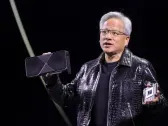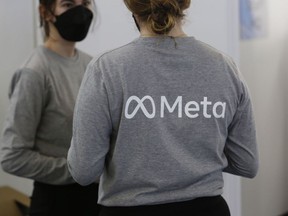Nvidia Expands Its Business with New AI-Powered Products
Nvidia, the world’s second-most valuable firm, has unveiled a range of new products that are set to expand its business and cement its position as a leader in the tech industry. At CES 2025, a major annual tech conference in Las Vegas, CEO Jensen Huang laid out the company’s vision for bringing technology from its lucrative data center AI chips to consumer PCs and laptops.
Artificial Intelligence for Robots and Cars
One of the most significant announcements was the introduction of Nvidia’s Cosmos foundation models. These models generate photo-realistic video that can be used to train robots and self-driving cars at a much lower cost than using conventional data. By creating "synthetic" training data, the models help robots and cars understand the physical world similar to how large language models have helped chatbots generate responses in natural language.
The Cosmos foundation models will be made available on an "open license," similar to Meta Platforms’ Llama 3 language models that have become widely used in the tech industry. This move is expected to bring about significant cost savings for companies working on robotics and industrial AI projects.
"We really hope (Cosmos) will do for the world of robotics and industrial AI what Llama 3 has done for enterprise AI," Huang said, highlighting the potential impact of this new technology.
However, not everyone is convinced that Nvidia’s robotics push will significantly boost its sales. Bank of America analyst Vivek Arya noted that making products reliable, cheap, and pervasive enough to spawn credible business models remains a significant challenge. "The challenge in our view is … making the products reliable enough, cheap enough and pervasive enough to spawn credible business models," he said.
Gaming Chips with AI Technology
In addition to its robotics efforts, Nvidia also unveiled new gaming chips that use its "Blackwell" AI technology. The RTX 50 series aims to give video games movie-like graphics, especially in the field of shaders, which can help images look more realistic by adding imperfections and fingerprint smudges.
The new chips will range in price from $549 to $1,999, with top models arriving on Jan. 30 and lower-tier models coming in February. Ben Bajarin, chief executive of technology consultancy Creative Strategies, said the new gaming chips should help boost Nvidia sales in the short term.
Nvidia’s First Desktop Computer
Huang also showed off Nvidia’s first desktop computer, called Project DIGITS. This computer is designed for computer programmers rather than regular consumers and will cost $3,000. It runs an Nvidia operating system based on Linux and features a chip at the heart of the company’s data center offerings paired with a central processor built with help from Taiwan’s MediaTek.
The desktop will be available in March and comes in a smaller package that can be used by individual software developers to test their AI systems quickly.
Partnership with Toyota
Nvidia also announced a partnership with Japan’s Toyota Motor. The company will use Nvidia’s Orin chips and automotive operating system to power advanced driver assistance in several models. Details about the specific models were not provided, but Toyota’s shares were up 1.7% in late Tokyo trade.
Huang expects automotive hardware and software revenue of $5 billion in fiscal 2026, up from an expected $4 billion this year.
Record High Stock Price
Nvidia’s stock closed at a record high of $149.43 on Monday, bringing its valuation to $3.66 trillion and making it the world’s second-most valuable listed company behind Apple.
The announcements made by Nvidia at CES 2025 demonstrate the company’s commitment to expanding its business and pushing the boundaries of what is possible with AI technology. With its new products and partnerships, Nvidia is well-positioned for continued growth and success in the tech industry.
Key Takeaways:
- Nvidia has unveiled a range of new products that are set to expand its business and cement its position as a leader in the tech industry.
- The company’s Cosmos foundation models will generate photo-realistic video for training robots and self-driving cars at a much lower cost than using conventional data.
- Nvidia’s new gaming chips use AI technology to give video games movie-like graphics, especially in the field of shaders.
- The company has announced its first desktop computer, called Project DIGITS, which will be available in March.
- Nvidia has partnered with Toyota Motor to power advanced driver assistance in several models.
About the Author:
Max A. Cherney and Stephen Nellis are reporters for Reuters, covering business and technology news.
Note: The views expressed in this article are those of the authors and do not necessarily reflect the opinions of Nvidia or any other company mentioned.










